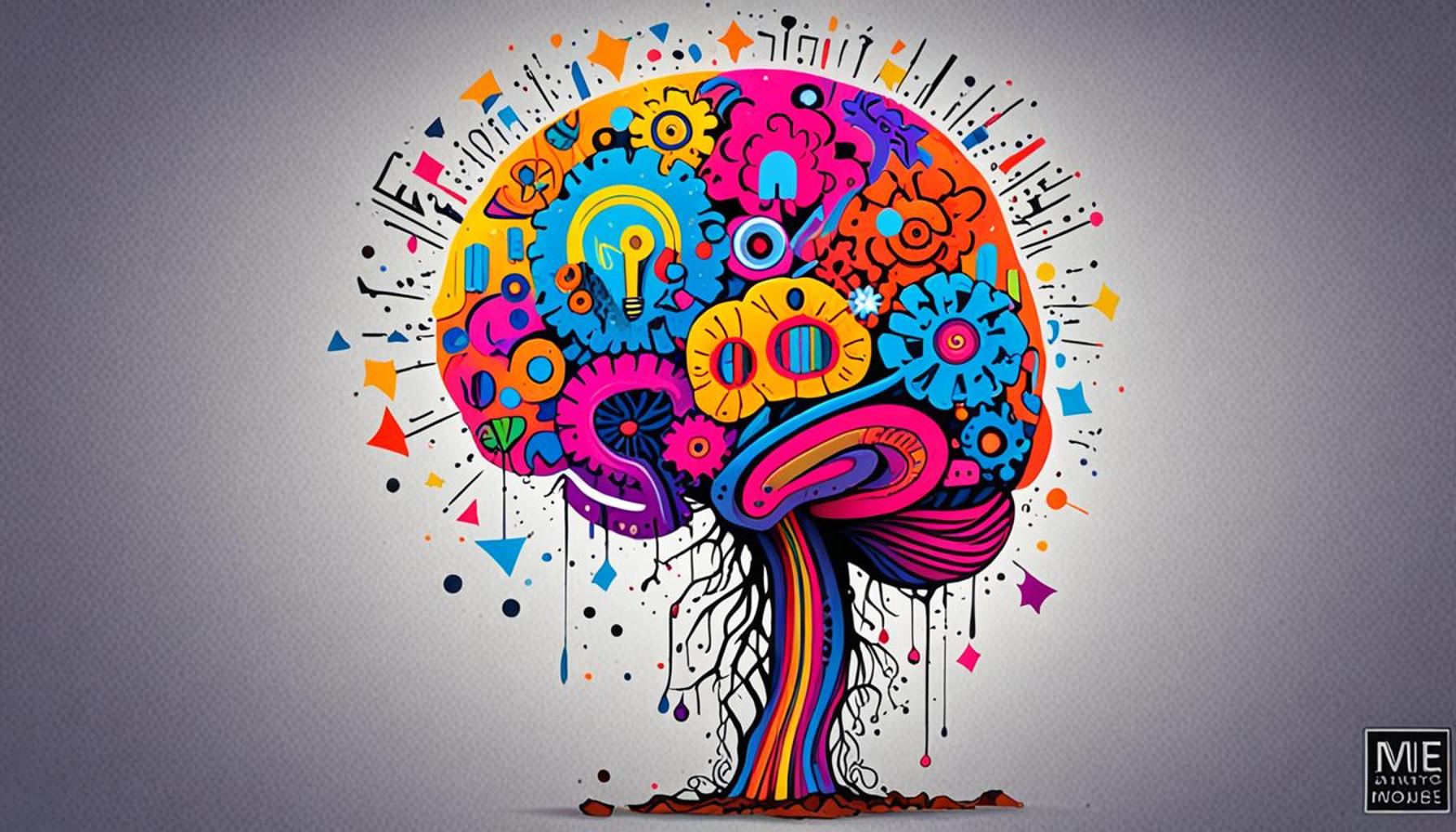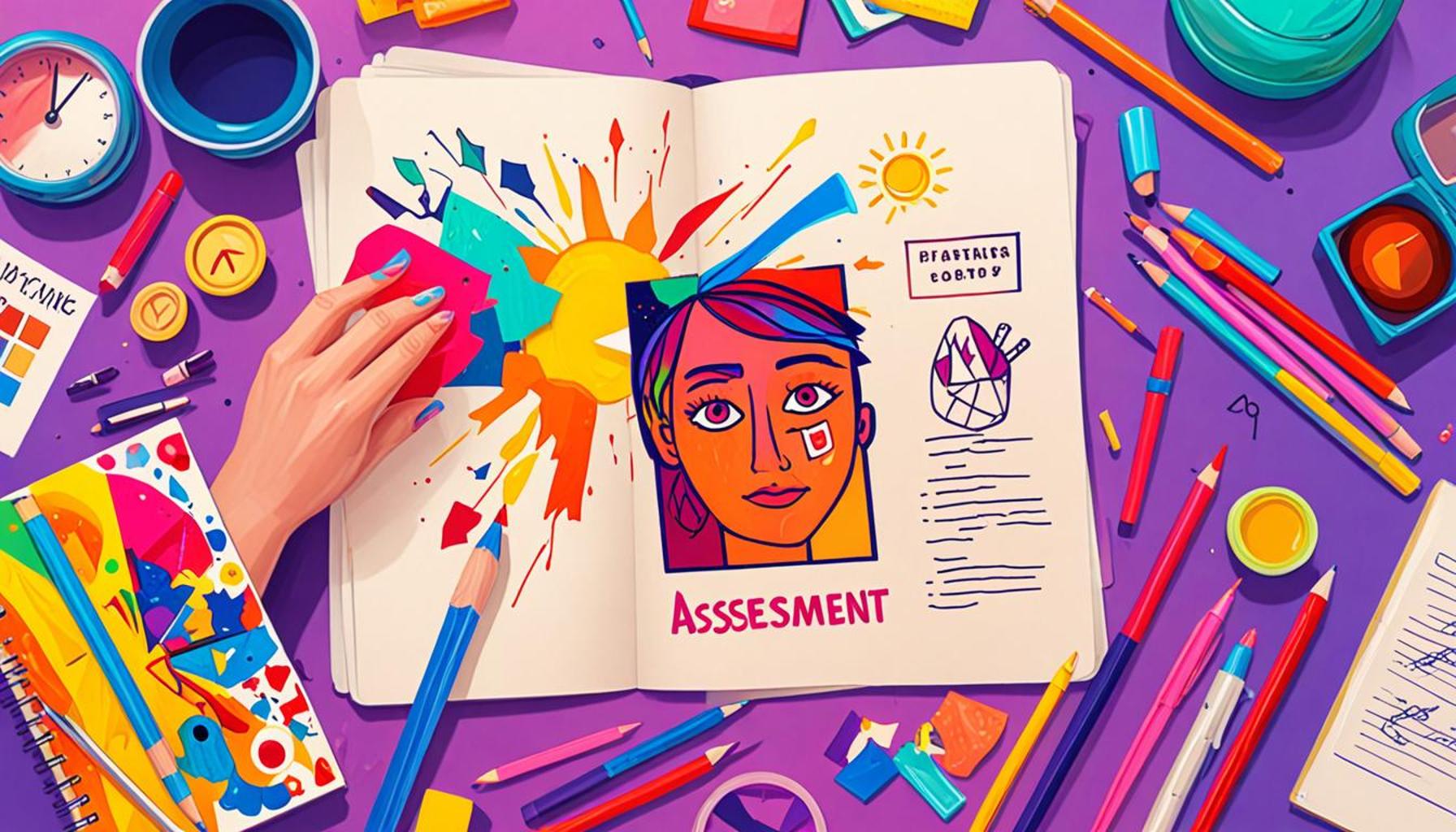The Psychology of Failure: How to Develop a Growth Mindset Through Challenges

The Power of Embracing Setbacks
Failure is often perceived as a negative outcome, but what if we viewed it as a critical part of our personal development? In Nigeria, where the entrepreneurial spirit thrives, many individuals face challenges that can lead to setbacks. These setbacks, while disheartening, can become powerful lessons that foster resilience and innovation. For instance, consider the plight of a Nigerian young entrepreneur who launches a startup only to face immediate financial hurdles. Instead of succumbing to despair, this individual can analyze what went wrong, adapt the business strategy, and implement changes that might lead to future success.
The Role of a Growth Mindset
Embracing a growth mindset means recognizing that our abilities can be developed through dedication and hard work. This concept, popularized by psychologist Carol Dweck, highlights the importance of:
- Adaptability: Learning to adjust to change and overcome obstacles. In Nigeria, entrepreneurs must adapt to fluctuating market conditions, regulatory changes, and consumer preferences.
- Persistence: Working through difficulties rather than giving up. For example, an artisan faced with reduced demand due to economic issues might pivot by offering new products or exploring online sales.
- Self-awareness: Understanding one’s strengths and areas for growth. This can involve seeking feedback from peers or mentors, helping individuals identify what they need to improve.
For many in Nigeria, such as small business owners facing economic fluctuations, understanding the psychology behind failure is crucial. Rather than viewing failure as a definitive end, it can be seen as an opportunity for growth and improvement. It’s this shift in perception that could mean the difference between giving up and achieving success.
Challenges as Catalysts
Challenges can serve as catalysts for personal and professional growth. Each setback brings invaluable insights, which can be applied in future endeavors. Consider these benefits of developing a growth mindset through challenges:
- Increased resilience: Overcoming adversity strengthens character and fortifies one’s resolve. Learning to bounce back from failure builds the mental toughness required in a competitive landscape.
- Enhanced creativity: New solutions emerge when facing limitations. Nigerian designers, for example, have created innovative products using locally sourced materials as a response to supply chain challenges.
- Broader perspectives: Each challenge offers a new viewpoint to understand success. By analyzing what led to their failure, entrepreneurs gain insights that shift their approach to problem-solving.
As we delve deeper into this topic, we will explore how to harness failure to cultivate a more positive and productive growth mindset. By embracing setbacks as learning opportunities rather than detrimental events, individuals can transform their obstacles into stepping stones toward success. Adopting such a mindset is not just a personal benefit; it holds the potential to uplift entire communities through resilience and innovation in Nigeria’s dynamic economic landscape.
ADDITIONAL INSIGHTS: Expand your understanding here
Understanding Failure as a Learning Tool
In the richly diverse landscape of Nigeria, the complexities of failure are often intertwined with cultural and societal expectations. The fear of failure can loom large, leading many to shy away from risks, but those who dare to tread the ground of uncertainty often find that failure is not the end, but rather a pathway to invaluable learning and evolution. A young software developer in Lagos may launch an app that garners little initial interest, but instead of viewing this as a reflection of inadequacy, embracing failure as a learning opportunity can be transformative.
Reframing Failure
To effectively navigate challenges, it’s crucial to reframe our understanding of failure. Instead of a personal indictment, viewing failure through the lens of growth is imperative. Here are key perspectives to consider:
- Learning Orientation: Each setback reveals lessons about what didn’t work, allowing for a more informed approach next time. It’s like a trial-and-error process where each trial brings the potential for greater insight.
- Shortcomings as Stepping Stones: Acknowledging that everyone faces shortcomings is vital. An aspiring fashion designer may face a line of unsuccessful clothing collections, but these experiences can lead to heightened creativity and refined skills in the design process.
- Transformative Experiences: Engaging with failure leads to personal transformation. Entrepreneurs often find that the strategies they develop in the wake of a failure not only help overcome specific challenges but also enhance overall resilience and adaptability in future ventures.
Understanding this psychology allows individuals to cultivate not only a growth mindset, but also a deep-seated resilience that can withstand the pressures of Nigeria’s ever-evolving economic climate. The practice of reframing failure leads to actionable insights, pushing individuals to adapt their strategies and innovate indiscriminately.
The Benefits of Adopting a Growth Mindset
Ultimately, developing a growth mindset in the face of challenges offers significant benefits, especially in the entrepreneurial sphere. Consider these advantages:
- Fostering Innovation: The urge to innovate often stems from the necessity to overcome failure. Nigerian entrepreneurs can unlock new markets through creative adaptations to their products and services.
- Building Community Support: Sharing stories of failure and recovery creates a culture of support amongst peers. As more individuals embrace their challenges, communities can foster an environment where experimentation and risk-taking are celebrated.
- Long-term Success: Those who view setbacks as opportunities for growth are less likely to be deterred by hardships. Instead, they understand the potential for future success through perseverance and hard work.
These benefits highlight the importance of a growth mindset in not only personal journeys but also in contributing to a collective narrative of resilience. As we continue to explore the psychology of failure, it becomes evident that embracing challenges catalyzes innovation, persistence, and communal support, paving the way for a thriving entrepreneurial culture in Nigeria.
The Psychology of Failure: How to Develop a Growth Mindset Through Challenges
When delving into the psychology of failure, it is essential to understand the transformative power of challenges. Numerous studies have demonstrated that embracing failure can significantly contribute to personal growth. In fact, individuals with a growth mindset view challenges as opportunities to learn rather than insurmountable obstacles. This shift in perspective is vital for fostering resilience and adaptability in various facets of life, particularly in academic and professional settings.To further illustrate this point, consider the concept of ‘neuroplasticity,’ which refers to the brain’s ability to reorganize itself by forming new neural connections throughout life. Research indicates that when individuals encounter challenges and setbacks, they activate regions of the brain associated with learning and problem-solving. Thus, facing obstacles not only enhances cognitive function but also encourages emotional growth. Moreover, the role of feedback cannot be overstated in the journey towards achieving a growth mindset. Constructive criticism can provide valuable insights that propel individuals towards improvement. Adopting a mindset that seeks feedback, rather than avoiding it, can lead to greater long-term success. Experiencing failure often stimulates a desire to refine skills, seek support, and cultivate perseverance. It is also worth noting that sharing narratives of failure can foster connection and reduce the stigma surrounding setbacks. By discussing personal challenges, individuals can inspire others and create a supportive community where failure is seen as a natural part of the learning process. This communal aspect is vital in developing a collective growth mindset, allowing everyone to thrive amidst challenges.As we navigate through the complexities of failure, it becomes clear that it is not a roadblock, but a stepping stone to personal and professional success. Embracing failure opens the door to countless possibilities, paving the way for a flourishing mindset.
| Category 1 | Category 2 |
|---|---|
| Resilience | Building mental strength through experiences of adversity |
| Adaptability | Adjusting strategies in response to feedback and challenges |
| Growth | Perseverance through failure leading to significant personal development |
The journey through failure is one that can define the core of who we are, offering lessons and insights that propel us towards realizing our true potential. Embracing each misstep as a key component of the learning process empowers individuals to continuously evolve and succeed.
YOU MAY ALSO LIKE: Read read another article
Leveraging Failure for Personal and Professional Growth
The journey towards a growth mindset is not just a personal endeavor; it is significantly influenced by the environment one embodies. In Nigeria, where cultural narratives often shape perceptions of success and failure, it is essential to recognize how external factors can either propel us forward or hold us back from embracing our setbacks. In fact, the collective experiences of individuals inform not only personal outlooks but also broader societal trends.
The Role of Mentorship
One of the most effective strategies for transforming failure into a stepping stone is through mentorship. When experienced individuals share their stories of failure and recovery, they create a framework for understanding that setbacks are part of the process. Consider the stories of prominent Nigerian entrepreneurs like Iyinoluwa Aboyeji, co-founder of Andela and Flutterwave, who openly discuss their early missteps. Their candidness not only inspires others but reinforces the notion that failure leads to invaluable lessons and growth.
- Mentoring Others: As experienced individuals share their failures, they reinforce learning in their protégés. Available mentorship programs can be transformative for youth and aspiring professionals, creating networks of support that foster the growth mindset.
- Building Emotional Intelligence: Engaging with mentors allows individuals to develop emotional resilience, helping them cope with feelings of inadequacy. Emotional intelligence is a key component of a growth mindset, enabling individuals to navigate setbacks more effectively.
Encouraging a Culture of Risk-Taking
Moreover, nurturing a culture that embraces risk-taking is indispensable in fostering growth and innovation. In many Nigerian communities, taking risks is often viewed negatively. However, as organizations like the Nigeria Entrepreneur’s Forum promote entrepreneurship through events and workshops, more individuals are encouraged to step outside their comfort zones and attempt new ventures.
- The Power of Collaborative Learning: Engaging in groups and forums dedicated to entrepreneurship can foster an atmosphere of collaborative learning. These environments often emphasize the understanding of failure as a shared experience, shifting the stigma into a collective journey toward growth.
- Celebrating Small Wins: Fostering a cultural shift that embraces the idea of incremental progress allows individuals to appreciate their journey, even when it includes failures. Celebrating small wins, such as securing a new client after several unsuccessful pitches, reinforces a positive outlook.
Practical Strategies for Developing a Growth Mindset
To cultivate a growth mindset amidst the challenges of failure, individuals can employ specific strategies that promote resilience and continuous improvement:
- Setting Realistic Goals: Instead of aiming for perfection, setting achievable goals allows individuals to track progress and recognize their growth. Celebrating minor improvements, such as mastering a new skill, creates a sense of accomplishment.
- Journaling Experiences: Documenting experiences, including failures, can provide insights into personal patterns and areas of growth. This reflection helps one to position negative experiences within the narrative of their broader journey.
- Seeking Feedback: Actively seeking constructive feedback from peers or mentors can transform failures into actionable insights. This practice fosters openness to criticism and strengthens personal development.
By employing these strategies, coupled with the cultural support from mentorship and community engagement, individuals in Nigeria can navigate the tumultuous waters of failure, thereby transforming obstacles into opportunities for growth and innovation.
YOU MAY ALSO LIKE: Read read another article
Conclusion: Embracing Failure as a Catalyst for Growth
The psychology of failure can be a transformative force, shaping the way individuals approach challenges and opportunities for growth. Embracing setbacks not only encourages a shift towards a growth mindset but also liberates individuals from the fear of failure that often stifles innovation and progress. In Nigeria, where societal narratives frequently emphasize success over struggle, it becomes all the more critical to recognize the value of failure as a pathway to improvement.
By fostering mentorship and cultivating a culture that accepts risk-taking, communities can empower individuals to view their failures as stepping stones rather than insurmountable obstacles. This collective journey towards resilience is enhanced by practical strategies such as setting realistic goals, journaling experiences, and actively seeking feedback. As people learn to celebrate both big and small wins—even in the face of failures—they rewrite the societal script regarding success.
Furthermore, as organizations and individuals in Nigeria embrace a more nuanced understanding of failure, they contribute to a broader cultural transformation that prioritizes learning over judgment. This shift not only enhances personal development but also propels entire communities towards innovation and progress. Ultimately, by harnessing the psychological insights surrounding failure, we can cultivate a generation that views challenges as opportunities, paving the way toward a brighter future.


